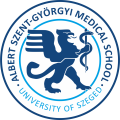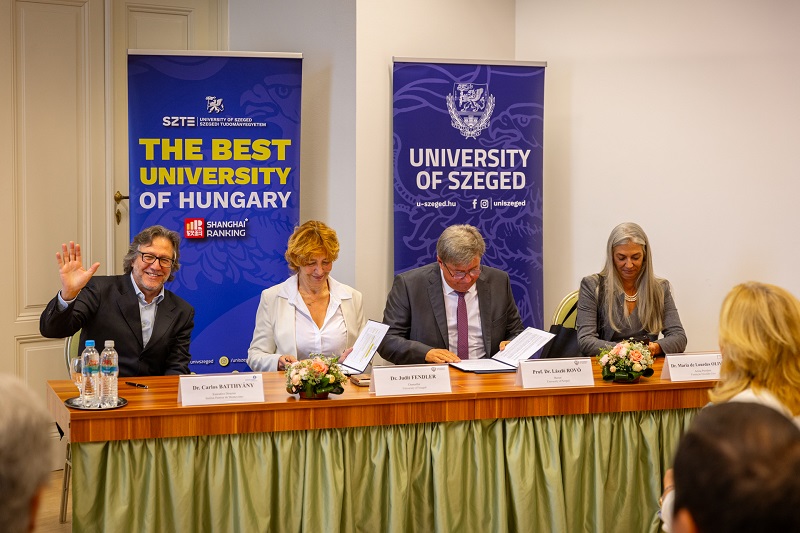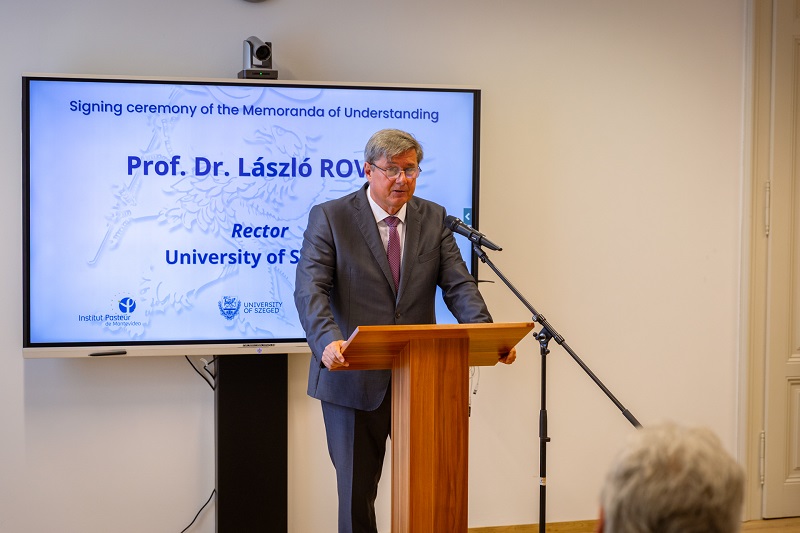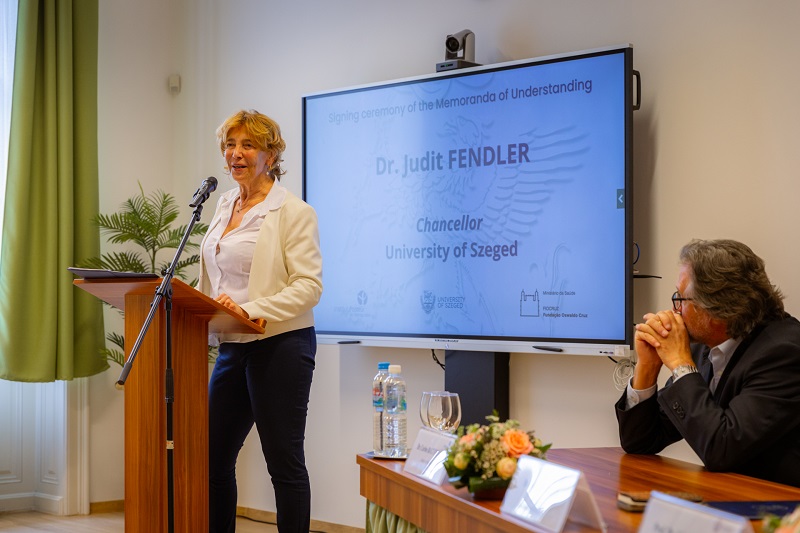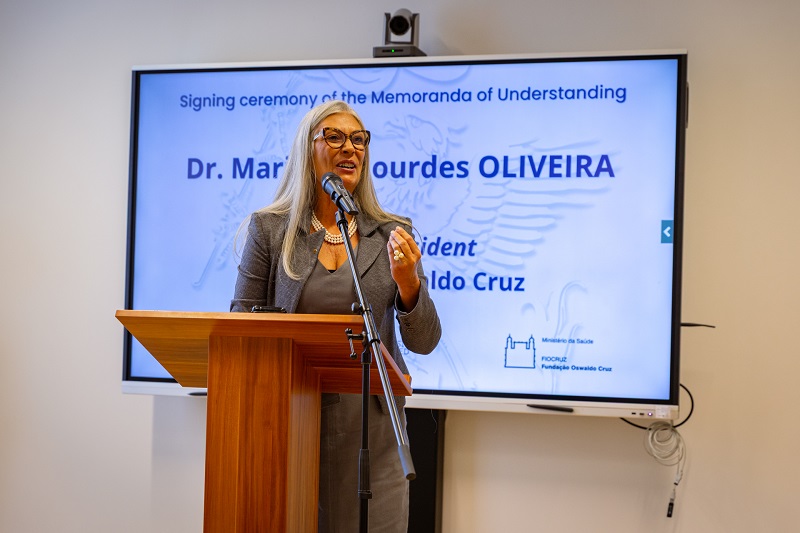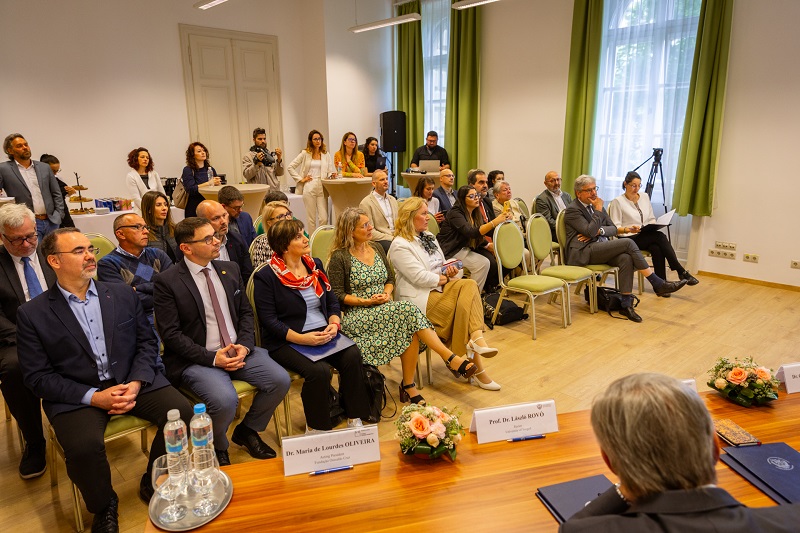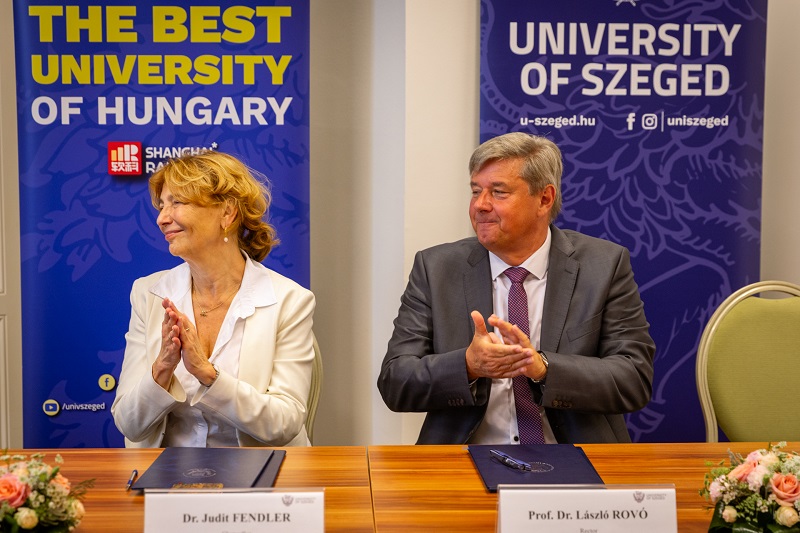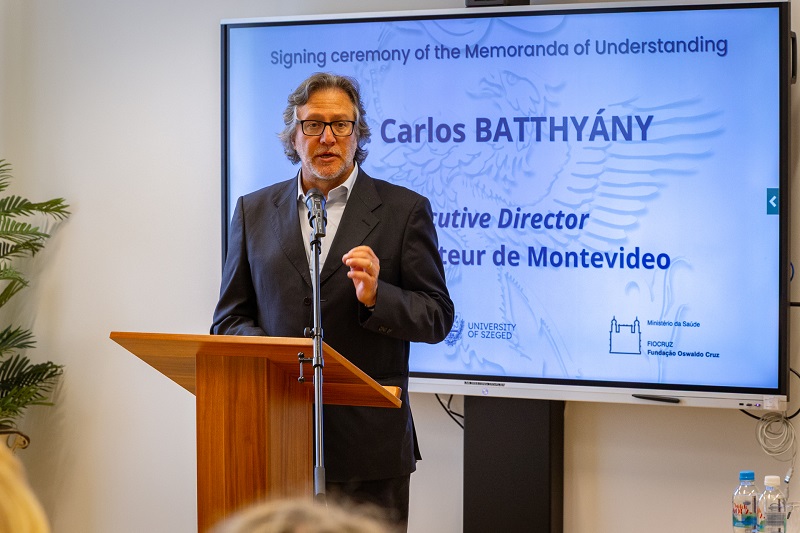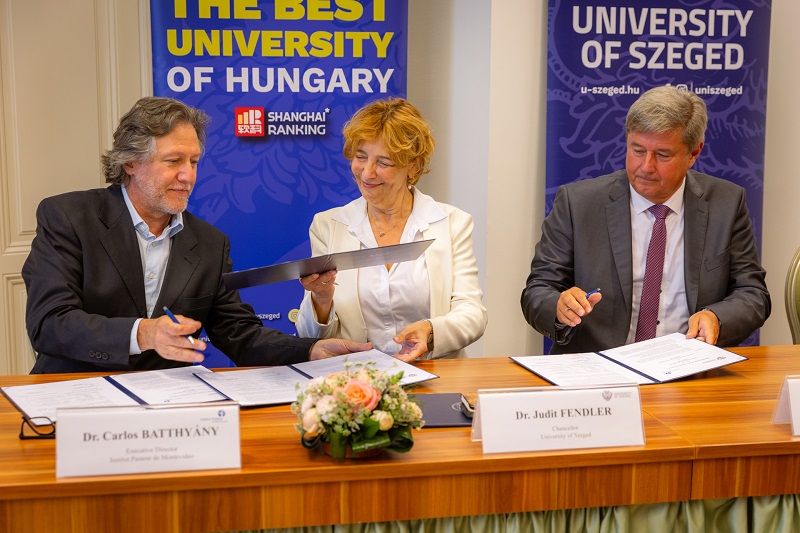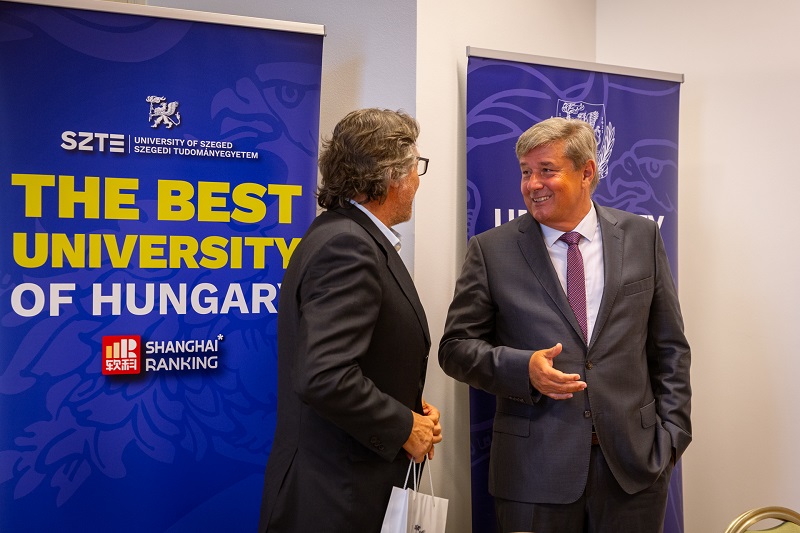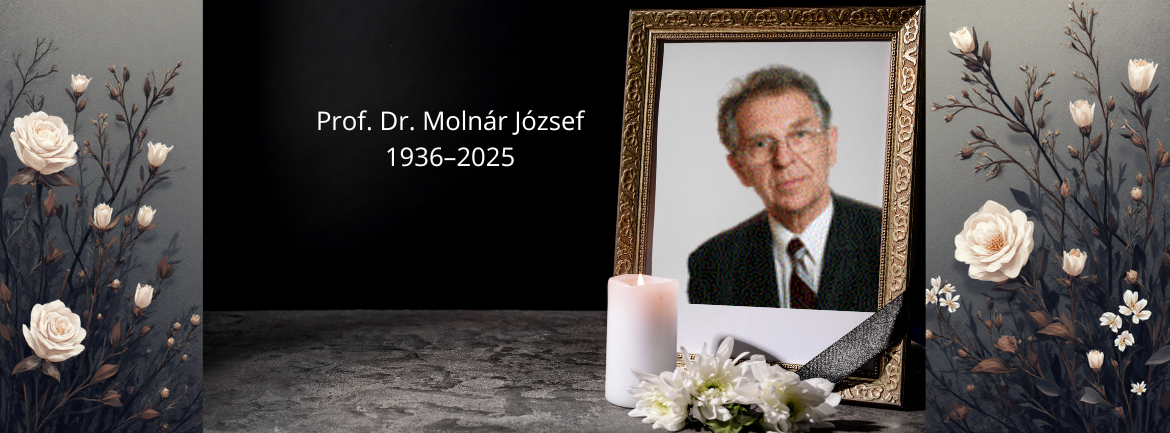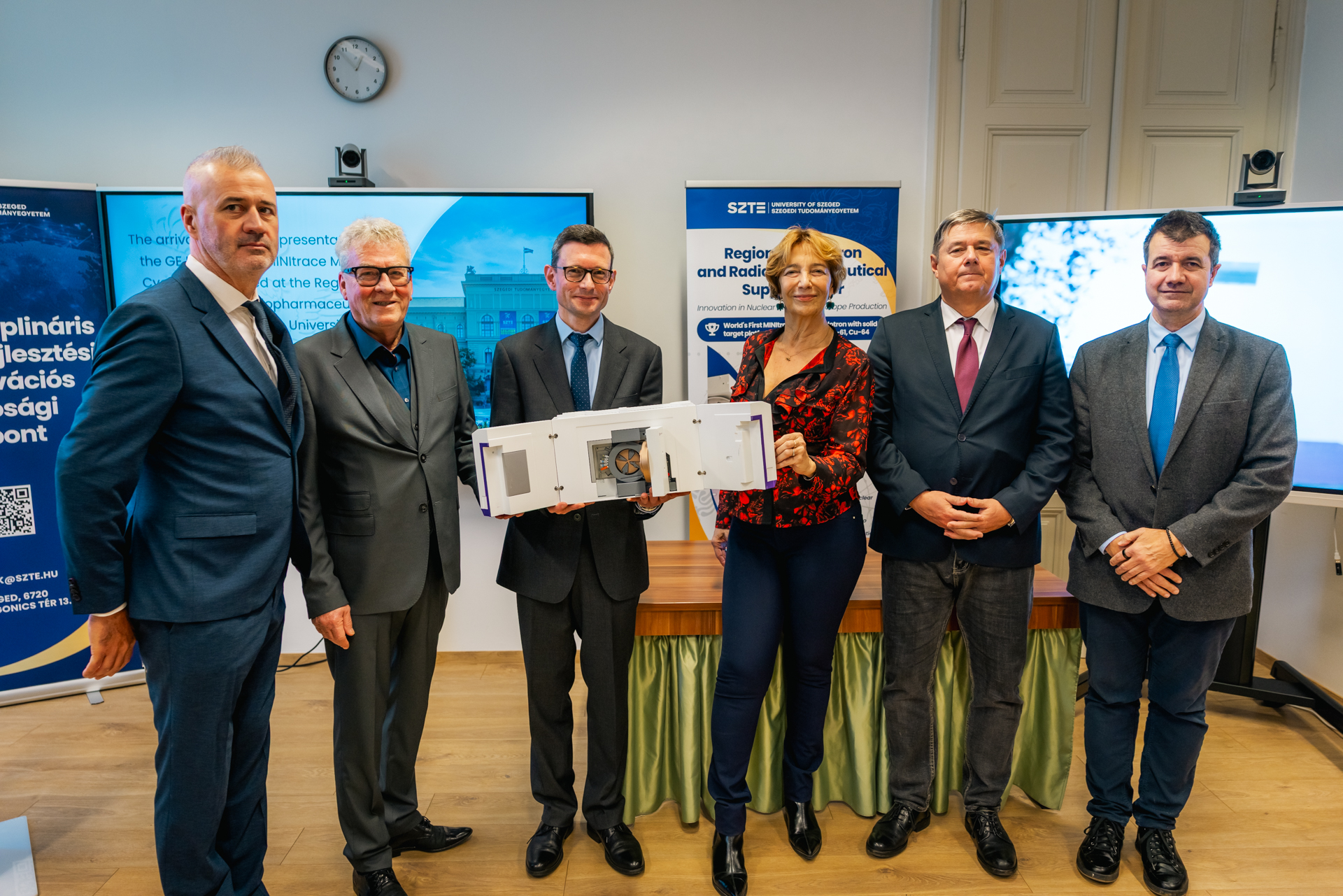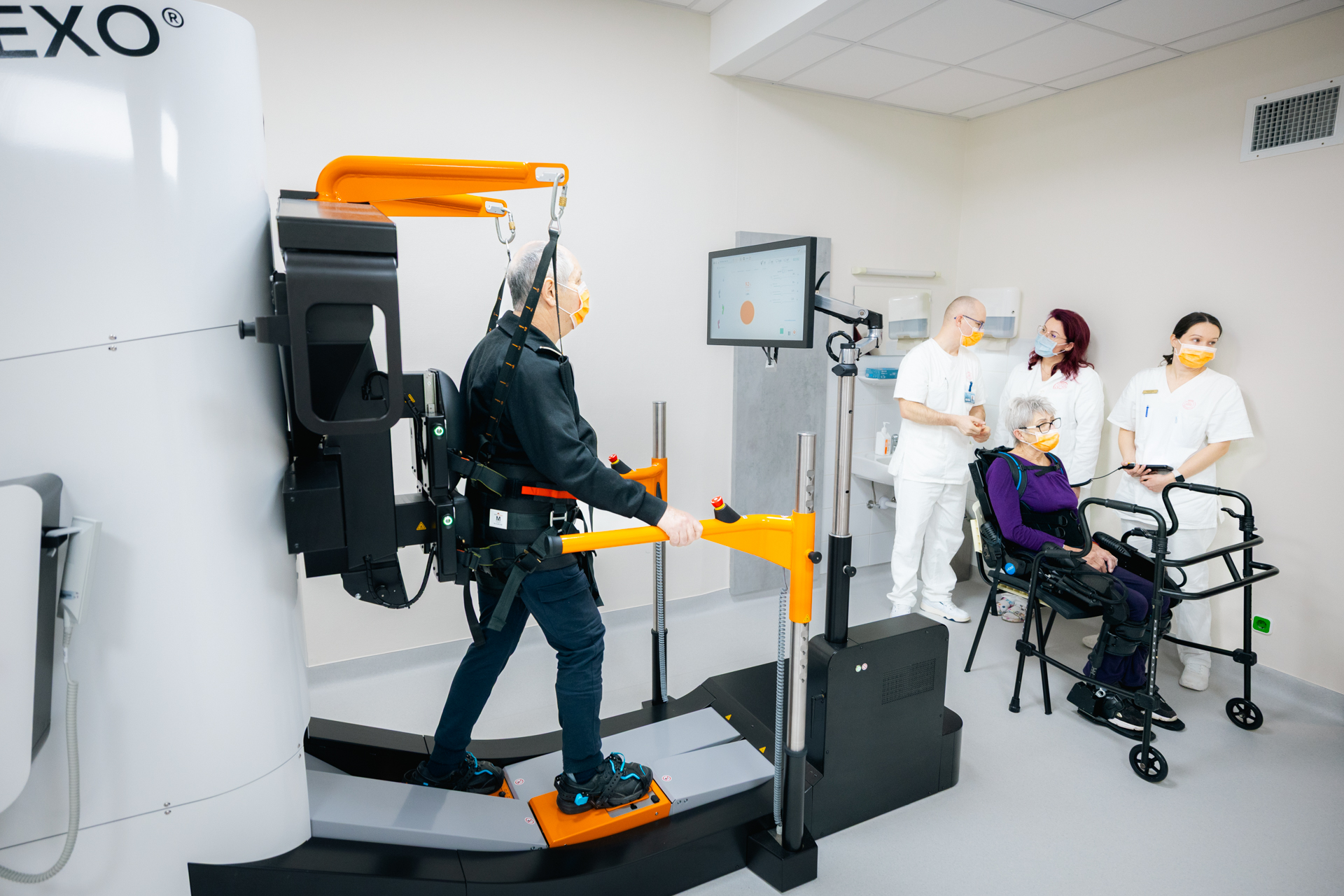University of Szeged
Albert Szent-Györgyi Medical School
Foreign Students' Secretariat
Your Education. Our Mission.
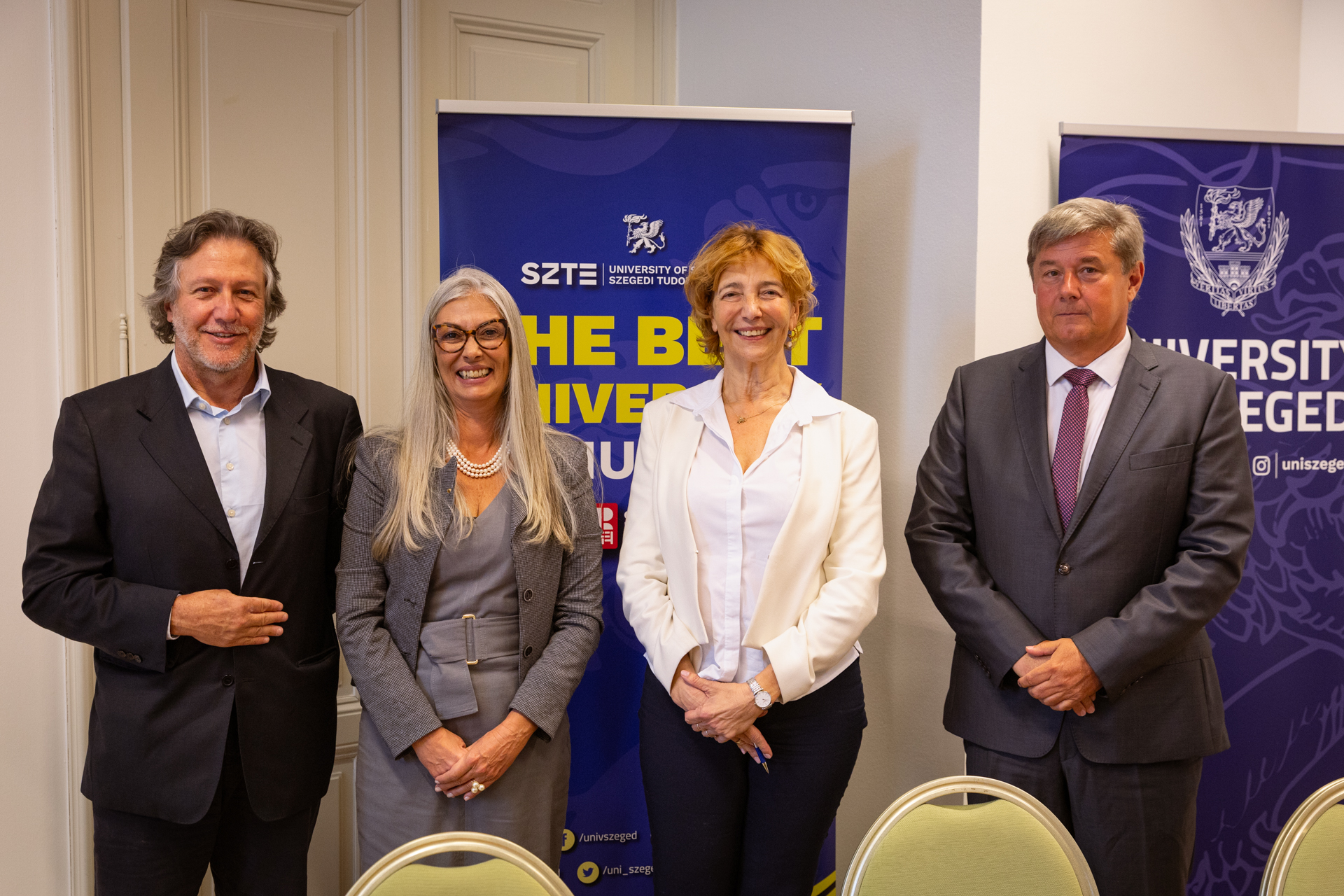
SZTE Enters Strategic Partnerships with Leading South American Research Institutions on its 444 Anniversary
The origins of the University of Szeged date back to May 12, 1581, when István Báthory established the Jesuit College in Cluj-Napoca – an institution recognized as SZTE's legal predecessor. Exactly 444 years later, the University marked this anniversary with a symbolic “birthday gift”: the signing of two strategic partnership agreements. Supported by two of South America’s leading scientific and healthcare institutions, these partnerships are set to position SZTE among the global research elite in emerging and internationally significant fields of healthcare research and education.
On May 12, 2025, the University of Szeged signed a cooperation agreement at the Rector’s Office with two of South America’s leading healthcare institutions: the Oswaldo Cruz Foundation (Fundação Oswaldo Cruz, or FIOCRUZ), based in Rio de Janeiro, and the Pasteur Institute in Montevideo. Through these partnerships, SZTE will engage in research and educational activities of global significance.
The newly established interdisciplinary institute – created under the framework of the cooperation agreements and operating within the University’s Center of Excellence for Interdisciplinary Research, Development and Innovation (IKIKK) – will focus on advanced research into fungal infections, with particular attention to host–pathogen interactions involving species that pose serious threats to human health. This focus is especially timely and important, given that current estimates indicate that more than one billion people worldwide are affected by fungal infections, with over 1.5 million deaths attributed to these diseases each year.
The University of Szeged has maintained active collaborations with researchers from FIOCRUZ in Brazil for over a decade, with joint efforts extending from Rio de Janeiro to São Paulo and Curitiba. It also enjoys long-standing partnerships with the Pasteur Institute in Paris and several other member institutions of the broader Pasteur Network. The agreements now signed build on these foundations and reflect a shared commitment to biomedical innovation, infectious disease research, and the study of host–pathogen interactions.
At the opening ceremony, Prof. Dr. László Rovó, Rector of the University of Szeged, stated:
“There are days in the history of the University of Szeged that stand out as especially significant – and today is certainly one of them. Perhaps it is no coincidence that we are opening our newest research center on the very day we celebrate the 444th anniversary of the university’s founding. I’m convinced that this center is set to become one of our most important assets in the near future, and we hope it will gain recognition worldwide among the most renowned of its kind. This vision is underpinned by Szeged’s academic foundation – distinguished by Nobel Prizes – and, of course, by the strength of our institutional partnerships. Located within the Institute of Biology, SZTE has now established a unique in vivo experimental station. This facility is the only one of its kind in Hungary, and – together with five newly renovated laboratories – it is intended to advance the development of antimicrobial therapies, with particular emphasis on antifungal treatments. With this purpose in mind, the entire project aims to address a pressing, yet often overlooked, public health challenge. We are especially proud that this project has been made possible through the professional and financial support of one of our most esteemed alumni: Professor Katalin Karikó, recipient of the 2023 Nobel Prize in Physiology or Medicine. It goes without saying that when she lends her support to a project, we can be certain that it is grounded in science and truly worthy of endorsement.”
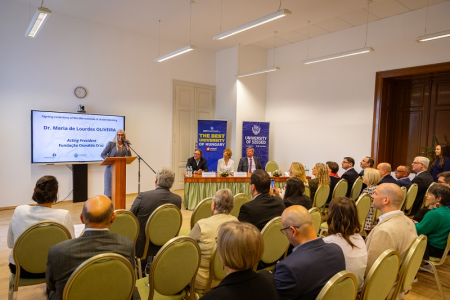 |
| Gallery by Ádám Kovács-Jerney |
The University of Szeged’s Institute of Biology previously took part in the Science Without Borders (Ciência sem Fronteiras) research and student exchange program launched by the Brazilian government. The current collaboration builds on this foundation, extending and deepening a long-standing and successful international partnership. The newly established Host–Pathogen Interaction Center in Szeged now opens the door for the University to join the FIOCRUZ Network for microbial infection and public health research – one of the largest and most renowned biomedical research networks in Latin America.
Speaking at the signing ceremony, Dr. Judit Fendler, Chancellor of the University of Szeged, emphasized:
“Today marks the start of a new collaboration that will bring benefits to all of us – both scientifically and financially. Through international cooperation, we unlock new opportunities by joining research networks. This grants us access to exclusive funding options only available through well-established global partnerships. Indeed, our new collaboration allows the University of Szeged to stand out among Central European universities involved in Latin American research and innovation efforts. This, in turn, enhances its international prestige and appeal.”
At the signing ceremony, Dr. Maria de Lourdes Oliveira, Executive President of FIOCRUZ, stressed the significance of taking this important next step in the longstanding partnership with the University of Szeged. She conveyed the Brazilian institution’s strong commitment to deepening collaboration and underscored the vital importance of uniting efforts to address the urgent challenges of our time – particularly climate change and its far-reaching impact on global health.
Dr. Oliveira also highlighted the inspiring legacy of SZTE alumna and current professor, Katalin Karikó, whose groundbreaking work has become a global benchmark for the scientific community. Her achievements, Dr. Oliveira noted, exemplify the transformative power of international scientific collaboration.
Operating within the University of Szeged’s Center of Excellence for Interdisciplinary Research, Development and Innovation (IKIKK), the newly established facility now makes it possible to study fungal infections in a comprehensive and coordinated way – with particular focus on species that pose a direct threat to human health.
Dr. Carlos Batthyány, Executive Director of the Pasteur Institute in Montevideo, shared his personal reflections on the University of Szeged during the event, emphasizing the institution’s remarkable development and its growing international stature. “From a global perspective, SZTE stands out as a university that has undergone extraordinary growth over the past 50 years,” he noted.
Dr. Batthyány also underscored a core mission of the Pasteur Network: ensuring that research findings from academic institutions are translated into practical solutions as swiftly as possible. “Many urgent global challenges remain unresolved, and it is our responsibility to accelerate the transition from discovery to real-world impact,” he said.
The University of Szeged is committed to establishing itself as a leading institution not only in Hungary but also internationally in critical fields such as host–pathogen biology and infectious disease research. Central to this ambition are the university’s strong existing research capabilities and the newly inaugurated Center for Host–Pathogen Interactions, which was officially opened in conjunction with the signing of cooperation agreements with the Oswaldo Cruz Foundation (FIOCRUZ) in Brazil and the Pasteur Institute in Montevideo.
Original Hungarian article by Ferenc Lévai
Feature photo (left to right): Dr. Carlos Batthyány, Executive Director of the Pasteur Institute in Montevideo; Dr. Maria de Lourdes Oliveira, Executive President of FIOCRUZ; Dr. Judit Fendler, Chancellor of the University of Szeged; and Prof. Dr. László Rovó, Rector of the University of Szeged – photographed on May 12, 2025, in Szeged
Photo: Ádám Kovács-Jerney

